The Fifth Global Forum on the Development of Computer Science (GFDCS) was held in a hybrid online and offline format at Tsinghua University on April 12th.
Chen Yuan, Vice Chairman of the 12th National Committee of the Chinese People’s Political Consultative Conference; Andrew Chi-Chih Yao, Dean of Tsinghua University’s College of AI, Dean of Tsinghua University’s Institute for Interdisciplinary Information Studies,and Turing Award laureate; and Bai Benfeng, Deputy Secretary of the CPC Tsinghua University Committee and Vice President, delivered opening remarks.
Under the theme of "The Development of Computer Science in the AI Era," the forum invited Turing Award laureate Jack Dongarra from the University of Tennessee, Samuel Madden, Chair of the Computer Science Department at MIT; H. V. Jagadish, Director of the Social Data and AI Research Institute at the University of Michigan; Luke Ong, Vice President of Research and Dean of the School of Computing and Data Science at Nanyang Technological University, and heads of computer science departments from Peking University and Harbin Institute of Technology, among other participating universities. The forum was co-chaired by Yin Xia, Director of the Department of Computer Science at Tsinghua University, and Li Guoliang, Deputy Director of the Department of Computer Science at Tsinghua University.

Chen Yuan delivering a welcome speech
Chen Yuan stated that building a cooperative platform for friendly exchanges in global computer science, conducting dialogue and cooperation on major issues in computer science, and learning from each other to embrace diverse ideas embodies our shared commitment to shaping the future of computer science and contributing to the common prosperity of human society. He hoped that this forum could further consolidate consensus on the development of computer science, explore new paths for computer science to empower the high-quality development of universities, explore innovative models for autonomous talent training, and promote interdisciplinary and cutting-edge innovation.
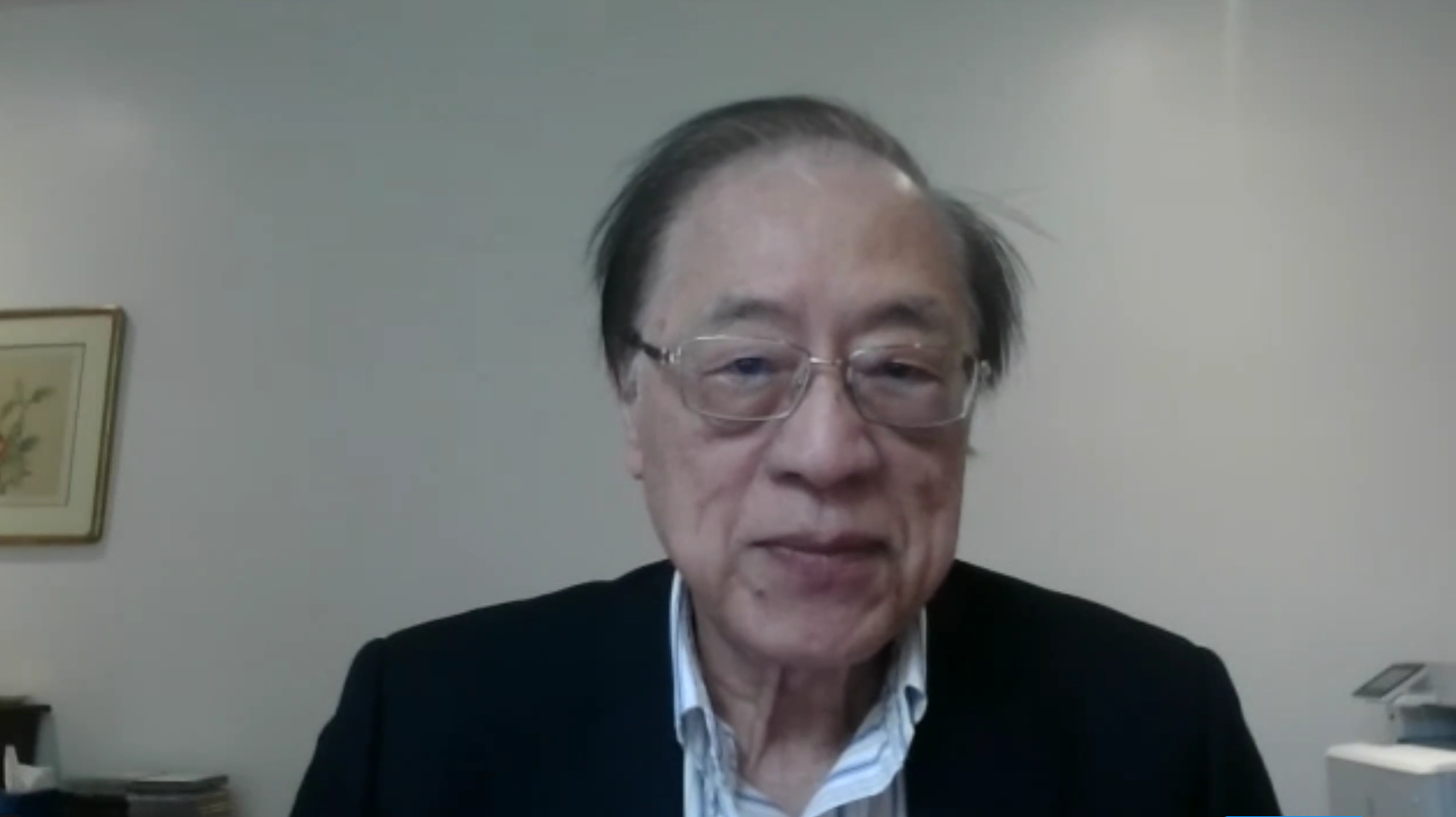
Andrew Chi-Chih Yao delivering online remarks
In his opening remarks, Andrew Chi-Chih Yao stated that AI is no longer just a distant vision, but rather a paradigm-shifting force that will redefine industries, societies, and even human potential. We have witnessed the relentless progress of computer science, since the 1960’s, laying the foundation for artificial intelligence. Interdisciplinary collaboration and integration between computer science and many other disciplines, such as biology, medicine, engineering, and humanities, have not only brought about major technological breakthroughs but also unprecedented challenges, calling on us to pool the strengths of various fields in order to jointly address them. He expressed his hopes for forum attendees to fully discuss important topics such as how artificial intelligence is reshaping scientific discovery, creating industry-changing innovations, and redefining human-machine collaboration.
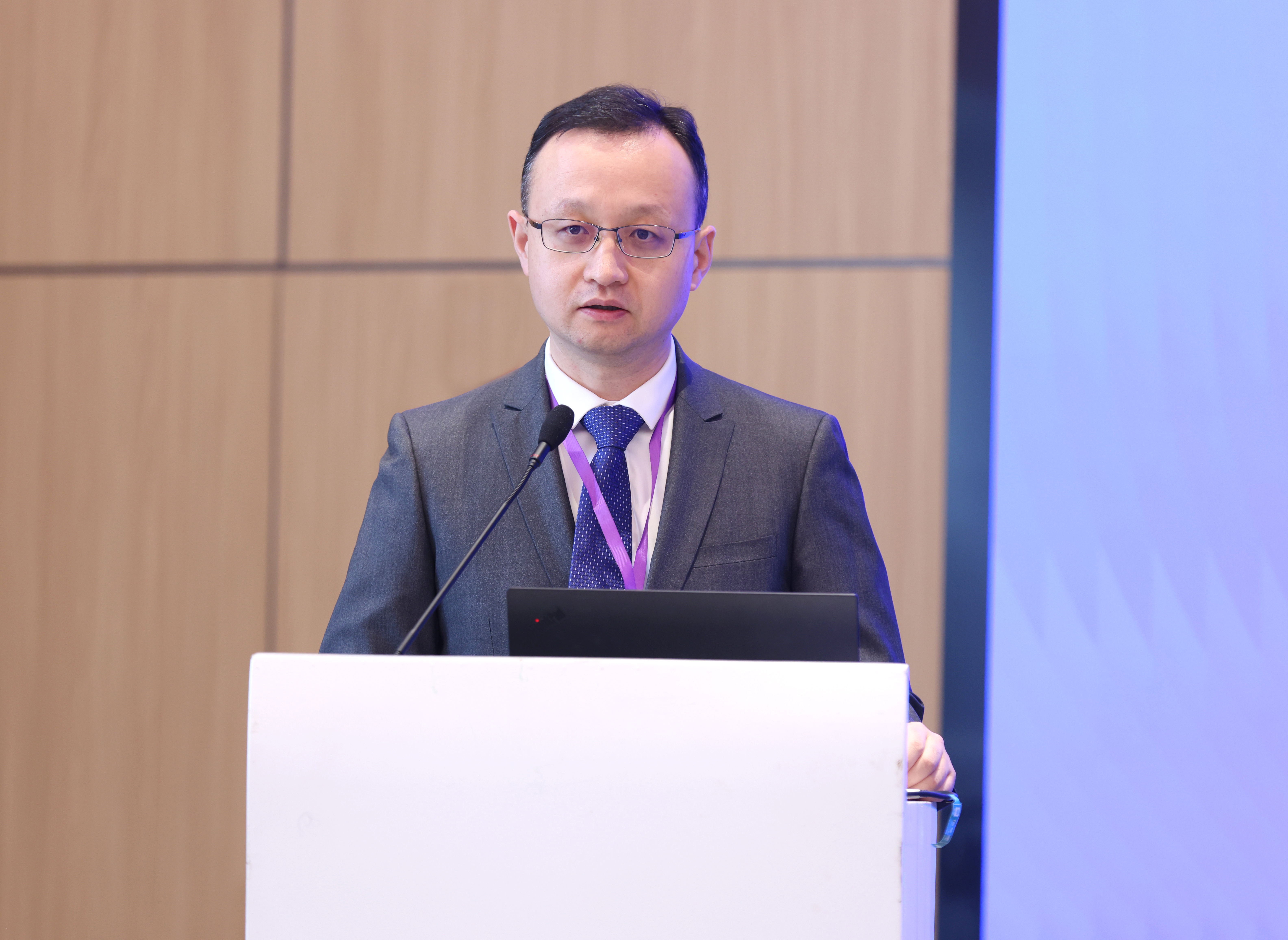
Bai Benfeng delivering a speech
On behalf of the University, Bai Benfeng welcomed the guests and briefly reviewed the consensus reached at the previous forum. He stated that the aim of the GFDCS is to bring together deans and department heads of computer science from renowned universities worldwide to address fundamental issues in computer science, enhance talent development, and promote the advancement of the computer science discipline. In the new era where traditional disciplines are being reshaped by the rise of AI technology, he hoped that experts and scholars would use the forum to deeply explore the development trends of computer science and the direction of interdisciplinary integration with a new sense of urgency, form a new consensus on the development of computer science worldwide, jointly enhance discipline development, and promote social progress.
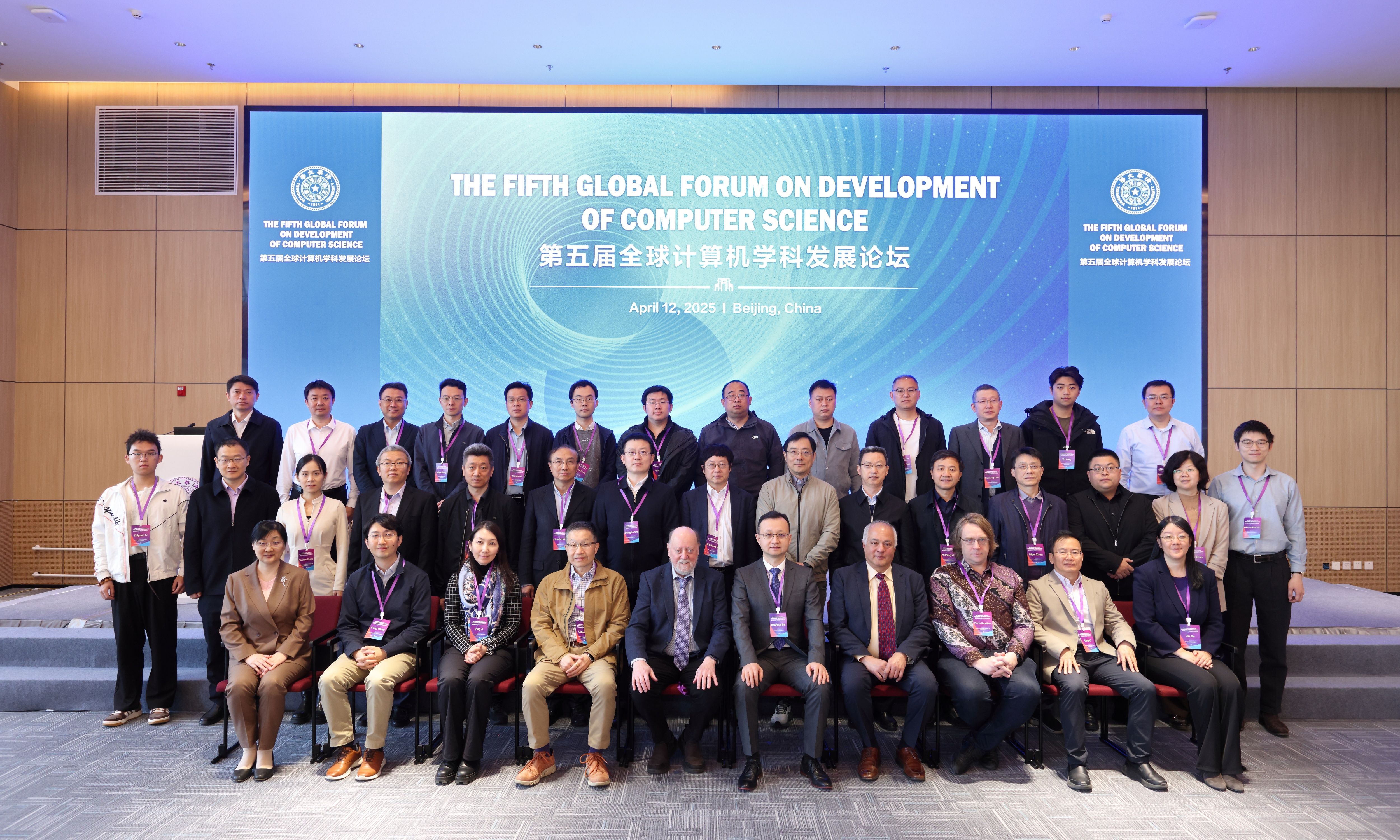
Group Photo of Attendees
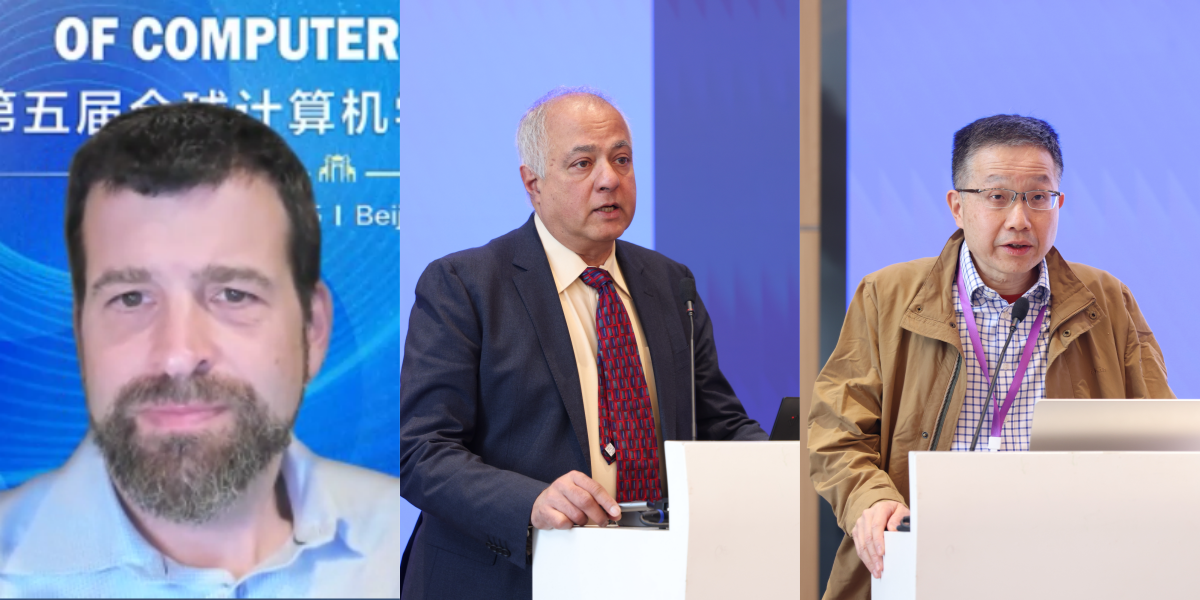
Samuel Madden, H. V. Jagadish, and Luke Ong delivering keynote speeches (from left to right)
In the first half of the forum, Samuel Madden, H. V. Jagadish, and Luke Ong delivered keynote speeches on topics such as the progress of computer science and artificial intelligence at MIT, computer science ethics in the era of artificial intelligence, and computing and data science in the era of artificial intelligence.
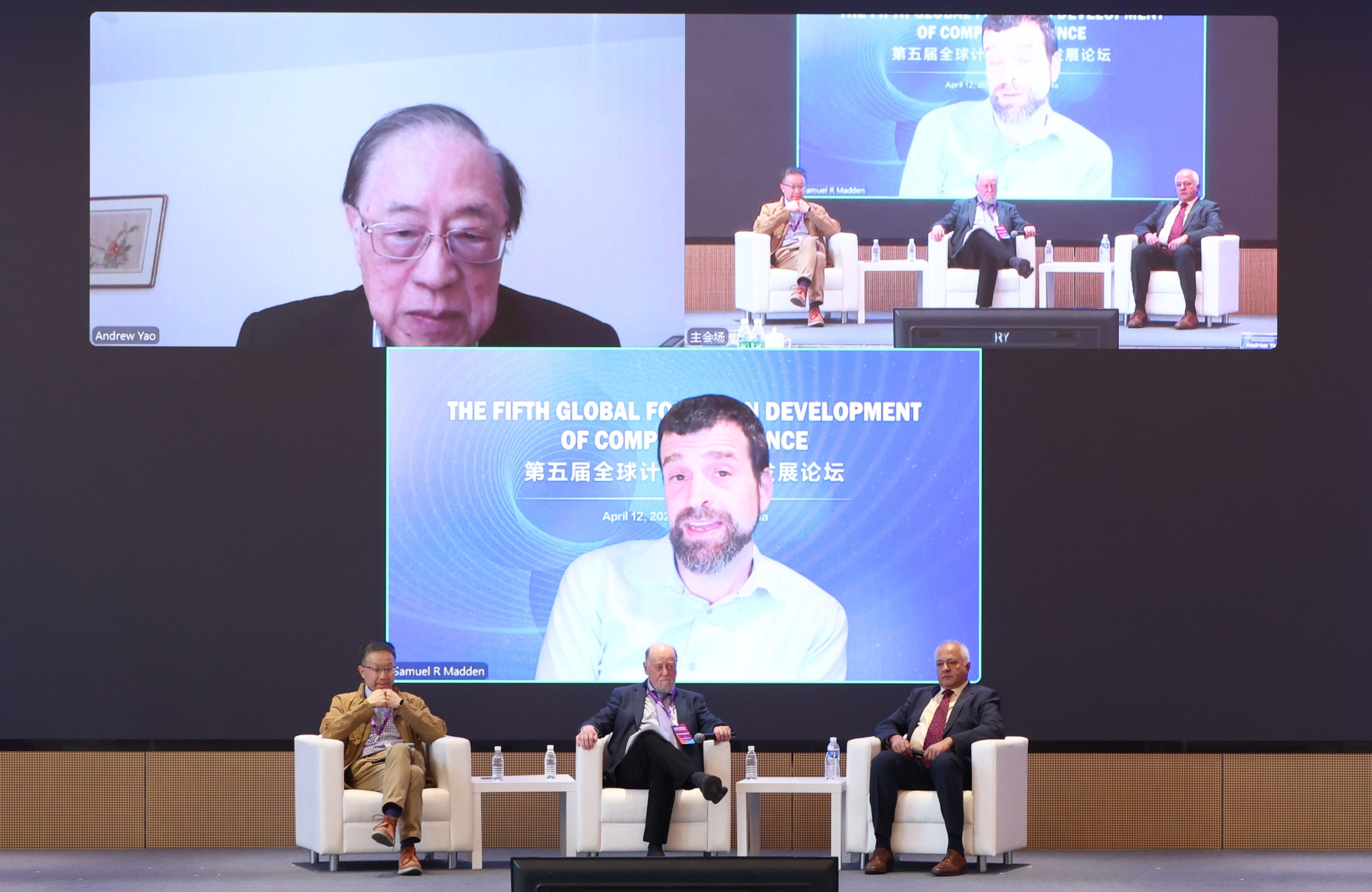
Experts and scholars participating in a morning panel discussion.
Following the speeches, Andrew Chi-Chih Yao, Jack Dongarra, and the three keynote speakers held a morning panel discussion to explore the topic "The Development of Computer Science in the AI Era."
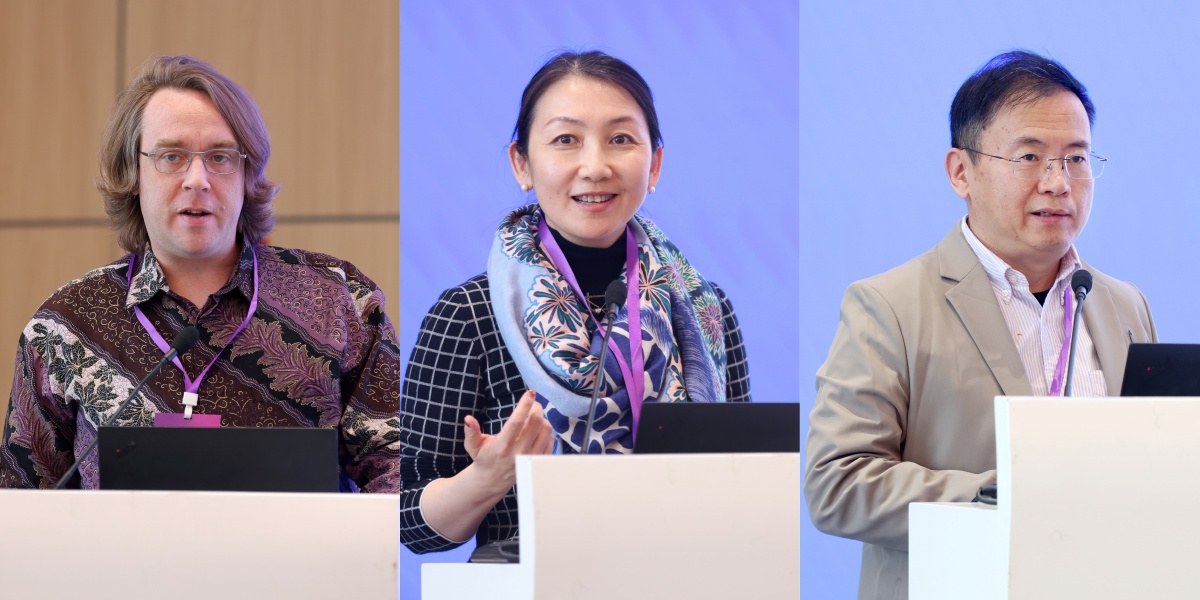
Pierre Senellart, Ji Ping, and Li Qing delivering keynote speeches (from left to right)
In the second half of the forum, Pierre Senellart, Director of the Graduate Program in Computer Science at PSL University; Ji Ping, Director of the Graduate School and Executive Officer of the Doctoral Program in Computer Science at the City University of New York and John Jay College, and Li Qing, Head of the Department of Computer Science at the Hong Kong Polytechnic University, delivered keynote speeches on topics such as the qualitative assessment of academic careers in computer science, a universally accessible educational ecosystem, and a knowledge graph-based framework for student curriculum guidance and career planning.

Experts and scholars participating in an afternoon panel discussion
Following the speeches, Li Xiangyang, Executive Dean of the School of Computer Science and Technology at the University of Science and Technology of China; Wang Cong, Head of the Department of Computer Science at the City University of Hong Kong, and the three keynote speakers held an afternoon panel discussion to explore the topic "Talent Development in the AI Era."
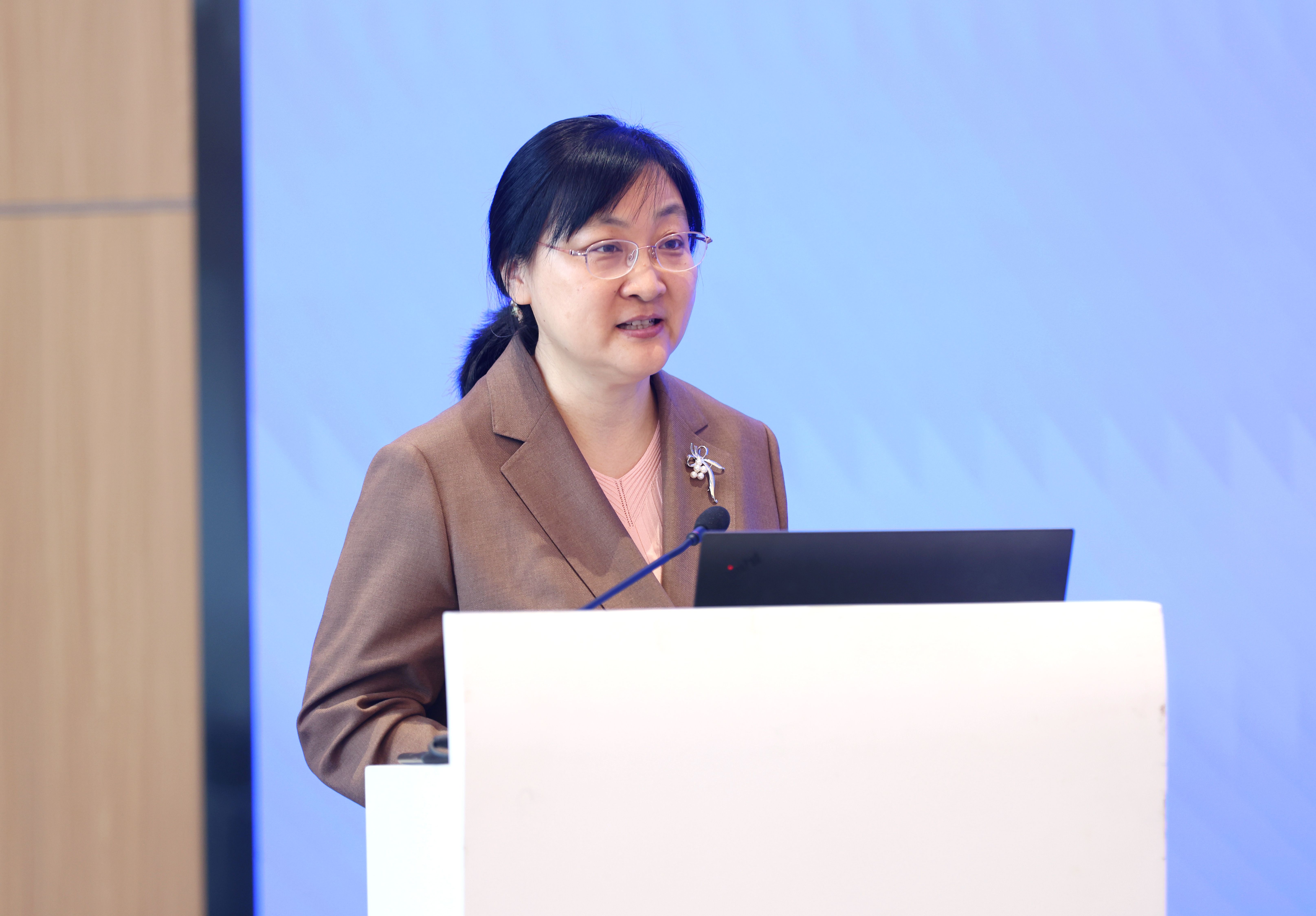
Yin Xia hosting the morning session

Li Guoliang hosting the afternoon session
The Global Forum on the Development of Computer Science is an international forum for high-level development of the computer science discipline hosted by Tsinghua University. Since its inception in 2018, the forum has been committed to exploring the fundamental nature of computer science and promoting its global development, earning widespread recognition from the international computer science community.
Editor: Li Han

